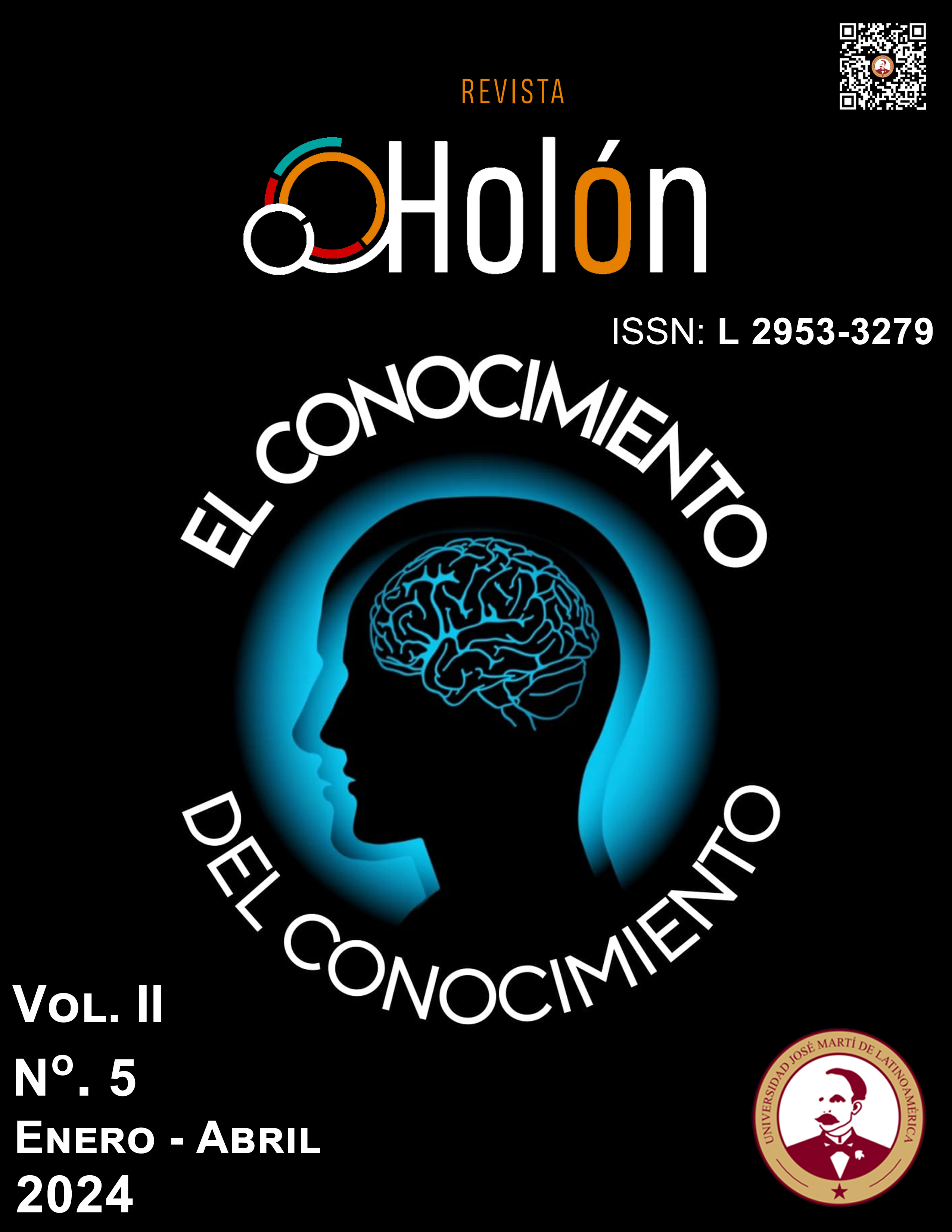

Copyright (c) 2024 Revista Holón

This work is licensed under a Creative Commons Attribution-NonCommercial-ShareAlike 4.0 International License.
The essay presented is derived from the author's doctoral thesis, presented at the José Martí University of Latin America, Monterrey, Nuevo León (2023). It is a theoretical investigation in which the hermeneutic method predominated, because the investigation is based on the interpretation and understanding of texts, in which analytical-synthetic, inductive-deductive, comparison, analogy, generalization logical processes were developed. An evaluation was carried out of the contributions of Edgar Morin's work “The seven-knowledge necessary for the education of the future” that highlights its theoretical-methodological and practical value in the teaching-learning process. This work brings to education a new complex conception of the world and a method as a certain and uncertain path of search. It establishes the explanatory bases for the achievement of academic-scientific excellence in the teacher training program, through the teaching-learning process, supported by the contents of the work and its concrete mediations. It shows that it is possible to contribute to the academic-scientific excellence of teachers, through the teaching-learning process. The work contributes to laying the foundations for a future educational design for the use of the seven-knowledge necessary for the education of the future in the teaching process, both from the theoretical - worldview and methodological and practical point of view for the systemic ascension of the teaching process educational.